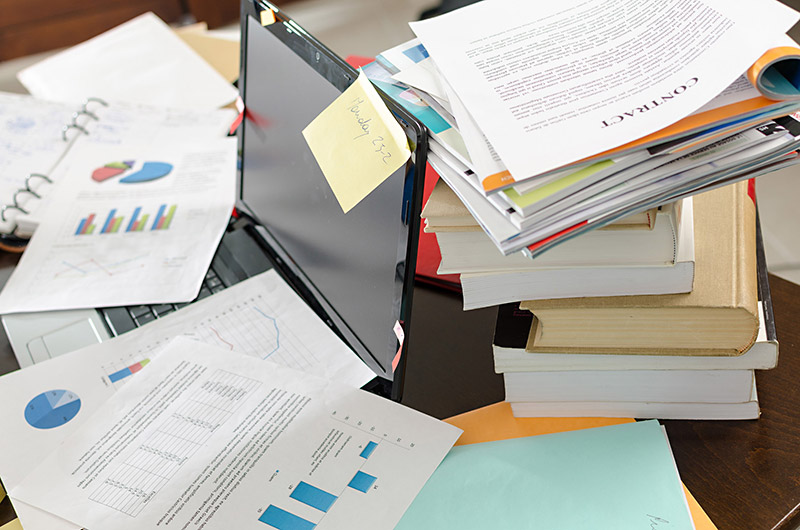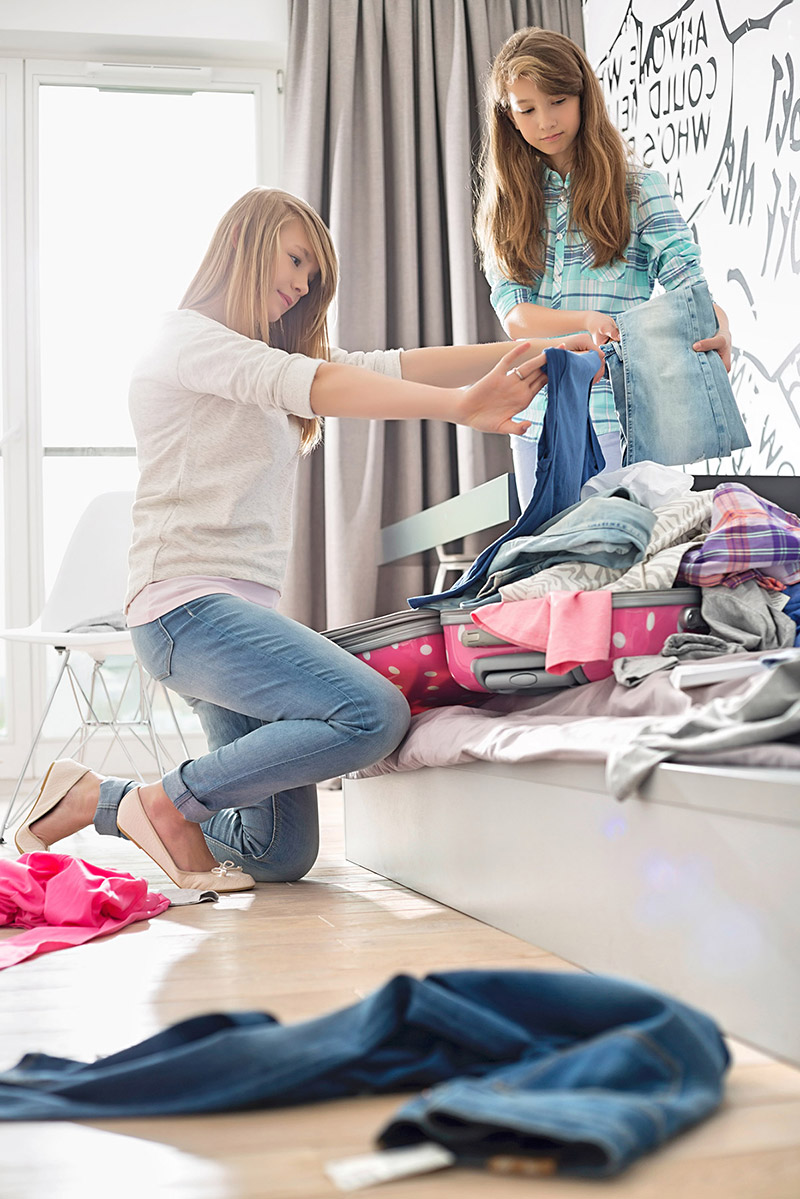If you or a loved one has ADHD, managing things and stuff can be overwhelming. Cindy Glovinsky, psychologist and author, explains that clutter is caused by impulsive actions that don’t do a good job of compensating for a better solution.
The following explains four challenges experienced by people with ADHD, why clutter can be overwhelming, and what you can do about it:
Trouble Tuning Into Things
If you or your child have ADHD, chances are stuff doesn't excite you the way people and ideas do, unless those things involve your personal interests. Your mind may focus on other things around you, like your own ideas in your head. You may wander around, not noticing what’s around you, or you might tune into some selected things and be distracted by others.
Strategies for Tuning In and Focusing on Things
• Create an errand box for things to remember in high-traffic areas.
• Use bright colors and alarms to capture your attention
• Place your work desk away from distractions
• Use a timer to minimize over-focusing
• Break tasks into small parts
• Take breaks
Trouble Seeing Things
Although many people with ADHD are visual, how your brain visually interprets information is critical to how you manage your stuff. Visual processing is not just realizing the object is physically there but also how you become aware of it. You may see it as an outline, or in full detail, slowly or all at once.
If your brain has challenges processing a lot of details, this can be limiting for how you organize your stuff. You'll need strategies for finding items or noticing the papers strewn across the counter that your partner sees.
Remembering where things are can also be difficult for people with ADHD who have challenges with holding onto information, accessing, and using the information. This may result in keeping everything "in sight" to remember where items are, only adding to the stress of finding it later.
Strategies for Visually Processing Things
• Scan the floor of the room systematically
• Take pictures of your space and observe your space through the photo.
• Use large reminder notes, or Post-It notes, in large block letters
• Color Code and label containers or Files/Binders/Notebooks
• Arrange consistent “homes” for very important things like keys, wallet and documents
• Use vertical files labels for things that have to be in sight
• Use analog clocks to visually process the passage of time
Trouble Thinking About Things
Living with ADHD can also result in feeling overloaded making decisions, especially when it comes to things. Once you make sense of what you see, it can be difficult to figure out what to do with your stuff and set up a plan to take action. This can be overwhelming and your brain can literally be flooded with uncertainty. You may be struggling with some exectuive functioning challenges, where initiating, sequencing, and following through can be problematic.
Strategies for Thinking About Things and Making Decisions
• Pick up one thing at a time.
• Making a list of steps to systemize the decision.
• Identify the most important factor (price, convenience, practicality) to make the decision.
• Sort waist-high, to make it easier on you physically and ease your resistance.
• Give yourself a reason to organize, such as getting ready for a special occasion, or setting up for the next season and set a date.
• Let go of getting it perfect and adapt a “good enough, move on” attitude.
Trouble Moving Things
Once you’ve figured out what you want to do with your things, finding the energy to manage your attention and motivation to move your things is common for someone with ADHD. It’s worth mentioning again that it’s tough getting energized for de-cluttering; it’s not that fun or interesting and you most likely get more excited about activities that are personally interesting.
Strategies for Moving Things
• Play a game with yourself and practice performing against a timer.
• Ask a nonjudgmental friend to help you monitor your activity level.
• Re-arrange your important places for your things so that they are in high traffic areas.
• If you set something down, write down where you put it on a Post-It note where you know you will see it.
• Establish a regular clean-up routine and put it on your calendar.
• Do small chores as they accumulate, such as cleaning dishes, so they don’t build up.
Clutter Consciousness
Many people with and without ADHD are blind to how clutter gets started. Clutter begins before it comes through the front door. With sales, Costco’s buying by the bulk, and those must-have impulsive buys, we run out of homes and surfaces to put our things. The floor becomes a table, and the dining room table becomes the countertops, as children are herded into the house and the phone is ringing.
Strategies for Creating Clutter Consciousness
Negative thinking and self-judgment can contribute to putting off decision-making and establishing constructive habits. To change any negative thought patterns you may have about your organizing habits, you have to first become more aware of them.
• Create consciousness of where your things are going to live now, the moment you walk in the door, instead of later which becomes an abstract time in the future.
• Keep a running list of negative perceptions you may have about any clutter you may have accumulated as your thoughts occur to you. Then, take a look at what you wrote, such as:
- 'Should' statements – “I should have cleaned the dishes last night…”
- Black and white thinking: “Because my house isn’t organized it’s about to be condemned.”
- Mind reading: “If anyone comes to my house, they’re going to criticize me.”
- Catastrophizing and blaming yourself: “Nothing is organized in my home. I’ll never be able to clean up.”
- Give yourself permission to stop beating yourself up.
It’s important to develop an awareness of your strengths, weaknesses, and habits in order to identify strategies for change.
[Reference: Glovinsky, Cindy, Making Peace with the Things in your Life, 2008]
Looking for a way to support you in shifting your decisions about clutter, and developing habits that will stick?
Call 847-757-8780 or
Schedule a Virtual Session Below
Thanks for checking the calendar first to find an appointment time that works for both of us. If you don’t see anything that works for you please join my wait list by indicating any time that’s convenient for you and I will get right back with you as soon as a time opens up. Thank you so much! ~ Cheryl


